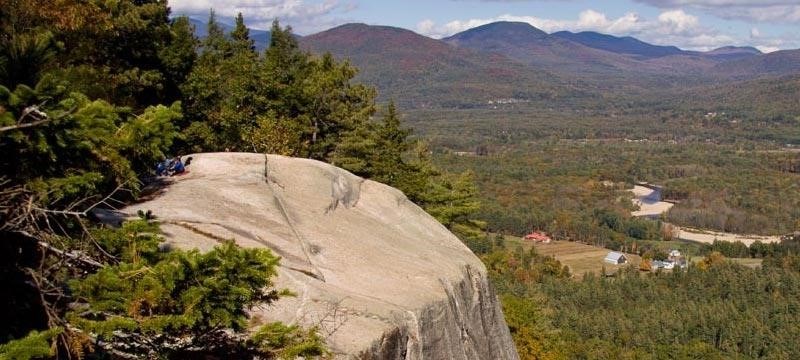
nh hiking guide
NH Hiking Guide⁚ A Comprehensive Overview
Discover New Hampshire’s diverse hiking terrain, from challenging climbs to family-friendly trails. Explore the White Mountains’ iconic peaks, scenic waterfalls, and abundant state park opportunities. Plan your adventure with our essential gear, safety tips, and trail resources. Experience the Granite State’s natural beauty responsibly.
Exploring NH’s Diverse Hiking Terrain
New Hampshire boasts a remarkable variety of hiking experiences, catering to all skill levels and preferences. From the challenging ascents of the White Mountains’ 4,000-footers, demanding fitness and endurance, to gentle, family-friendly trails winding through serene forests and alongside sparkling lakes, there’s a path for everyone. The state’s terrain is as diverse as its trails, ranging from rugged, rocky ascents to smooth, well-maintained paths suitable for leisurely strolls. The White Mountains region offers breathtaking panoramas from lofty summits, while southern New Hampshire presents gentler hills and valleys, perfect for a relaxed hike. Numerous state parks and forests provide well-marked trails and ample opportunities for exploring. Whether you seek a strenuous workout or a peaceful nature walk, New Hampshire’s extensive network of trails delivers an unforgettable outdoor adventure. Remember to check trail conditions and weather forecasts before embarking on your hike.
Best Hikes in the White Mountains
The White Mountains offer some of the most iconic and challenging hikes in New England. Mount Washington, the highest peak in the Northeast, presents a formidable challenge for experienced hikers, with its unpredictable weather and steep, rocky trails. For a less strenuous but equally rewarding experience, consider Mount Monadnock, renowned for its panoramic views and accessibility. The Franconia Ridge Trail, a stunning traverse along the ridgeline, provides breathtaking vistas and a memorable journey. Artist Bluff Trail, known for its artistic rock formations and relatively moderate difficulty, is a popular choice for hikers of all levels. For waterfall enthusiasts, a hike to Arethusa Falls or Flume Gorge offers a refreshing escape alongside cascading water. Remember to research trail conditions and obtain necessary permits before embarking on your chosen adventure. Each trail offers a unique experience, from challenging climbs to picturesque landscapes, rewarding hikers with unforgettable memories and stunning views. Always prioritize safety and prepare accordingly for the chosen trail’s difficulty level.
Top Trails for Beginners and Families
New Hampshire boasts a variety of trails perfect for families and those new to hiking. The Mount Major Trail, in the Lakes Region, offers stunning views of Lake Winnipesaukee with a manageable 3.8-mile roundtrip distance, making it ideal for a family outing. The relatively gentle incline makes it accessible for various fitness levels, ensuring a pleasant experience for all. For shorter, easier walks, explore the numerous trails within New Hampshire’s state parks. Many offer well-maintained, level paths perfect for leisurely strolls and picnics. The Sunapee-Ragged-Kearsarge Greenway, a 75-mile loop trail, offers sections suitable for beginner hikers, with options for shorter segments. Remember to check trail conditions and accessibility features before heading out. Consider bringing snacks and water, especially for longer hikes with children. Choose trails based on your group’s fitness level and experience, prioritizing safety and enjoyment. A well-planned family hike can create lasting memories and foster an appreciation for the natural beauty of New Hampshire. Enjoy the journey!
Challenging Hikes for Experienced Adventurers
For seasoned hikers seeking a true test of their abilities, New Hampshire offers a plethora of demanding trails. The Mount Lafayette and Franconia Ridge Trail Loop, renowned for its difficulty, rewards persistent hikers with breathtaking panoramic views. This challenging route, with a 4.9-star rating from numerous reviews, demands excellent physical fitness and navigational skills. The Huntington Ravine Trail on Mount Washington presents another formidable challenge. Known for its exposure and steep, rocky terrain, this trail should only be attempted by experienced hikers in favorable weather conditions. Avoid it entirely when wet or icy, as the risk of injury is significantly increased. Many of New Hampshire’s 48 4,000-foot peaks present significant challenges, requiring endurance, proper equipment, and knowledge of mountain safety. Before embarking on these strenuous hikes, thoroughly research trail conditions, weather forecasts, and potential hazards. Pack appropriate gear, including sturdy footwear, layers of clothing, plenty of water and high-energy snacks. Always inform someone of your hiking plans, including your route and estimated return time, ensuring your safety on the trail.
Mount Monadnock⁚ A Classic NH Hike
Mount Monadnock, often called the most climbed mountain in the world, stands as a majestic landmark in southwestern New Hampshire. Its prominent, solitary peak offers stunning 360-degree views on a clear day, extending as far as Boston. While not the tallest peak in the state, its accessibility and rewarding vistas make it a perennial favorite among hikers of all skill levels. Several trails ascend its slopes, catering to various preferences and fitness levels. The most popular route is the White Dot Trail, a moderately challenging climb that leads to the summit. For a more challenging experience, consider the challenging M and M trail which connects Mount Monadnock to the New England Trail. Remember to check trail conditions and weather forecasts before you go, as the summit can be exposed to the elements. No matter which trail you choose, the panoramic views from the top make the effort worthwhile. The mountain’s popularity makes it a busy spot, especially on weekends and holidays. Plan your hike accordingly and consider visiting during the week or off-season for a more tranquil experience. Respect the natural environment by packing out everything you pack in, and enjoy the iconic beauty of Mount Monadnock.
Hiking in Southern New Hampshire
Southern New Hampshire offers a diverse range of hiking experiences, distinct from the towering peaks of the White Mountains. While lacking the dramatic elevation changes, this region boasts charming trails through forests, alongside lakes, and across rolling hills. Many trails are shorter and less strenuous, making them ideal for families and beginners. Popular destinations include Mount Kearsarge, known for its moderate climb and stunning views of the surrounding landscape; and Lake Massabesic Trail, a peaceful year-round option perfect for a leisurely stroll. The area is also home to several state parks offering a variety of trails, from easy walks to more challenging climbs. The Appalachian Mountain Club (AMC) maintains some trails in southern NH, providing well-maintained paths and valuable resources for planning your hikes. Be sure to check the AMC website for trail conditions and updates. Whether you’re looking for a relaxing afternoon hike or a more challenging adventure, southern New Hampshire’s trails provide a rewarding experience immersed in the beauty of the Granite State. Remember to always check weather conditions and trail updates before embarking on your chosen adventure. Enjoy the scenic beauty and tranquility of southern New Hampshire’s diverse hiking opportunities.
Waterfalls and Scenic Views

New Hampshire’s stunning landscapes offer a plethora of breathtaking waterfalls and panoramic vistas, rewarding hikers with unforgettable experiences. From the cascading waters of Flume Gorge to the dramatic drops found throughout the White Mountains, numerous trails lead to these natural wonders. Many hikes incorporate waterfall views as part of their journey, adding to the adventure. The White Mountains, in particular, are renowned for their spectacular waterfalls, often nestled amongst towering granite cliffs and lush forests. These majestic displays of nature’s power are a highlight for many hikers. Remember that some trails may be more challenging than others to access these scenic waterfalls, so proper planning and preparation are crucial. Consider researching specific trails beforehand to determine the appropriate level of difficulty for your fitness and experience. For those seeking gentler hikes with scenic overlooks, numerous trails in southern New Hampshire and throughout the state offer stunning views of lakes, valleys, and distant mountain ranges. Take the time to appreciate these stunning panoramas and capture the essence of New Hampshire’s natural beauty. Pack appropriate gear and allow ample time to enjoy the journey and capture the memory of these beautiful locations. Remember to respect the natural environment and leave no trace of your visit.
Planning Your NH Hiking Trip
Thorough planning is essential for a safe and enjoyable New Hampshire hiking experience. Begin by selecting trails appropriate for your fitness level and experience. Resources like AllTrails and the websites of New Hampshire State Parks provide detailed trail information, including difficulty ratings and reviews. Check weather forecasts before you embark on your hike, as conditions in the mountains can change rapidly. Pack layers of clothing to adapt to varying temperatures and weather conditions. Essential gear includes sturdy hiking boots, a backpack with plenty of water, snacks, a map, compass or GPS device, sunscreen, insect repellent, and a first-aid kit. Let someone know your hiking plans, including your chosen trail, estimated return time, and emergency contact information. Be aware of potential hazards such as wildlife encounters, changing weather, and challenging terrain. Familiarize yourself with Leave No Trace principles to minimize your environmental impact. Consider purchasing a detailed trail map and compass, or using a GPS device to ensure you stay on course, especially in areas with limited cell service. Remember, flexibility is key. Adjust your plans as needed based on weather conditions and your energy levels. Enjoy the journey and the incredible beauty of the Granite State’s trails!
Essential Gear and Safety Tips
Proper preparation is paramount for a safe and enjoyable hike in New Hampshire. Invest in sturdy, waterproof hiking boots broken in before your trip to prevent blisters. Pack a lightweight backpack containing ample water, high-energy snacks like trail mix or energy bars, and a substantial lunch. Navigation is crucial; bring a map, compass, and/or GPS device, understanding how to use them. A first-aid kit is essential for minor injuries, including bandages, antiseptic wipes, pain relievers, and blister treatment. Protect yourself from the elements with layers of clothing, including a waterproof jacket and pants. Sunscreen, insect repellent, and a hat are vital, even on cloudy days. A headlamp or flashlight is useful for unexpected delays. Inform someone of your hiking plans, including the trail, estimated return time, and emergency contact information. Be aware of weather changes; conditions can shift dramatically in the mountains. Stay on marked trails to avoid getting lost and to protect fragile ecosystems. Respect wildlife by maintaining a safe distance and never feeding animals. Carry a whistle for signaling in emergencies. Consider bringing trekking poles for stability on uneven terrain. Learn basic wilderness first aid and survival skills. Remember, responsible preparation significantly enhances safety and enjoyment on your New Hampshire hiking adventure.

Navigating NH Trails⁚ Maps and Resources
Successfully navigating New Hampshire’s extensive trail network requires careful planning and the use of reliable resources. The official website of the New Hampshire State Parks provides detailed trail maps, descriptions, and difficulty ratings for numerous trails across the state. AllTrails, a popular online platform, offers user-generated trail maps, reviews, and photos, allowing you to research trails and gather insights from other hikers. Many local bookstores and outdoor gear shops sell detailed topographic maps specific to various regions of New Hampshire, providing essential information like elevation changes and trail junctions. The Appalachian Mountain Club (AMC) offers comprehensive resources for hikers, including detailed maps, guidebooks, and trail information, especially helpful for tackling the challenging trails in the White Mountains. For those interested in specific areas like the White Mountains, the Visit White Mountains website provides useful trail maps and information. Remember to download maps onto your phone or GPS device before venturing into areas with limited cell service. Always carry a printed map and compass as a backup, learning how to use them effectively; Familiarize yourself with trail markers and symbols before your hike. Checking current trail conditions and weather forecasts before heading out can prevent unexpected delays or safety hazards. Using multiple reliable resources helps ensure a safe and enjoyable hiking experience in New Hampshire’s beautiful wilderness.
State Parks and Hiking Opportunities
New Hampshire boasts a remarkable network of state parks, each offering unique hiking experiences. These parks provide well-maintained trails catering to various skill levels, from leisurely strolls to challenging climbs. The New Hampshire State Parks website is an invaluable resource, providing detailed information on each park’s trails, amenities, and accessibility. Many parks feature interconnected trails forming extensive networks, allowing for multi-day backpacking adventures. Some parks offer stunning views of lakes and mountains, while others traverse forests and wetlands, showcasing the state’s diverse ecosystems. Before your visit, check the park’s website for any trail closures, parking fees, or permit requirements. Consider visiting during the off-season for a more peaceful experience, though some trails may be inaccessible due to snow or ice. Remember to pack appropriately for the weather conditions and trail difficulty. Many state parks offer camping facilities, allowing you to extend your hiking trip and fully immerse yourself in nature. The Sunapee-Ragged-Kearsarge Greenway, a 75-mile loop trail connecting four state parks, is a prime example of the extensive hiking opportunities available. Exploring New Hampshire’s state parks ensures an unforgettable encounter with the state’s natural beauty and rich biodiversity. Remember to practice Leave No Trace principles to preserve these valuable natural resources for future generations.
Sustainable Hiking Practices
Embrace sustainable hiking practices to preserve New Hampshire’s stunning natural landscapes for future generations. The Leave No Trace principles are your guide⁚ plan ahead and prepare, travel and camp on durable surfaces, dispose of waste properly (pack it in, pack it out), leave what you find, minimize campfire impacts, respect wildlife, and be considerate of other visitors. Stay on marked trails to avoid damaging vegetation and disturbing wildlife habitats. Proper trail etiquette includes yielding to uphill hikers, stepping aside to allow others to pass, and being mindful of noise levels. Respect wildlife by observing them from a distance and never feeding them. Pack out all trash, including food scraps and biodegradable materials. Consider using reusable water bottles and food containers to reduce waste. Support local businesses that prioritize sustainability and environmental responsibility. Educate yourself and others about responsible outdoor recreation. By adopting sustainable practices, you contribute to the long-term health and preservation of New Hampshire’s trails and natural areas, ensuring that future generations can enjoy the same breathtaking experiences. Promote responsible outdoor ethics among fellow hikers and help maintain the pristine beauty of the Granite State’s wilderness.
First Day Hikes in NH State Parks
Ring in the New Year with a revitalizing tradition⁚ New Hampshire’s First Day Hikes! These guided excursions, held annually in various state parks across the Granite State, offer a fantastic way to embrace the outdoors and celebrate the start of a new year. Choose from a variety of trails suitable for different fitness levels, from leisurely strolls to more challenging climbs, ensuring an enjoyable experience for everyone. These events are typically family-friendly, welcoming participants of all ages and abilities. Check the official New Hampshire State Parks website for the updated schedule of participating parks and trail details, including difficulty ratings, lengths, and specific meeting points. Pre-registration might be required for some hikes, so plan ahead to secure your spot. Dress warmly in layers appropriate for winter conditions, wear sturdy hiking boots, and bring water and snacks to keep your energy levels up. Embrace the invigorating fresh air and the stunning winter scenery as you embark on this memorable New Year’s Day adventure. Remember to check weather forecasts and trail conditions before setting out. Share your experience using the official event hashtag on social media; become part of a thriving community of outdoor enthusiasts.